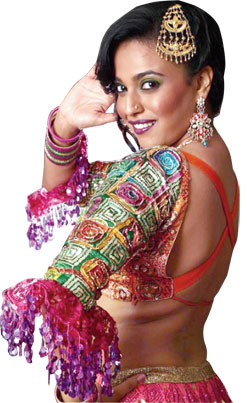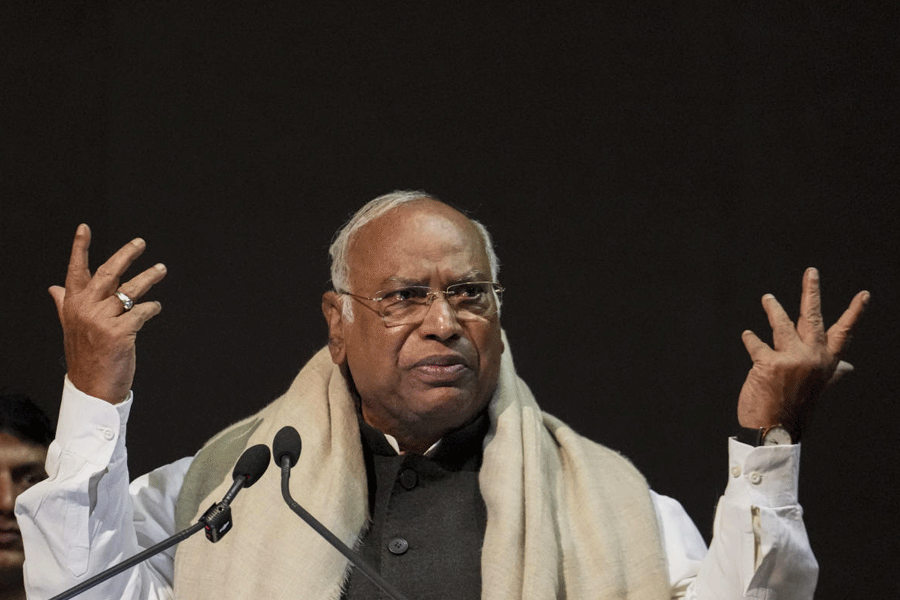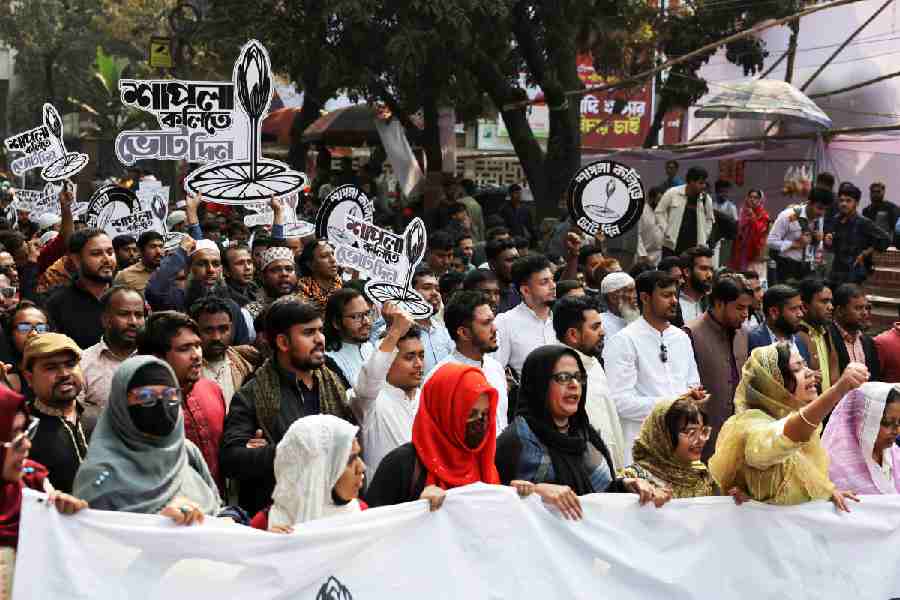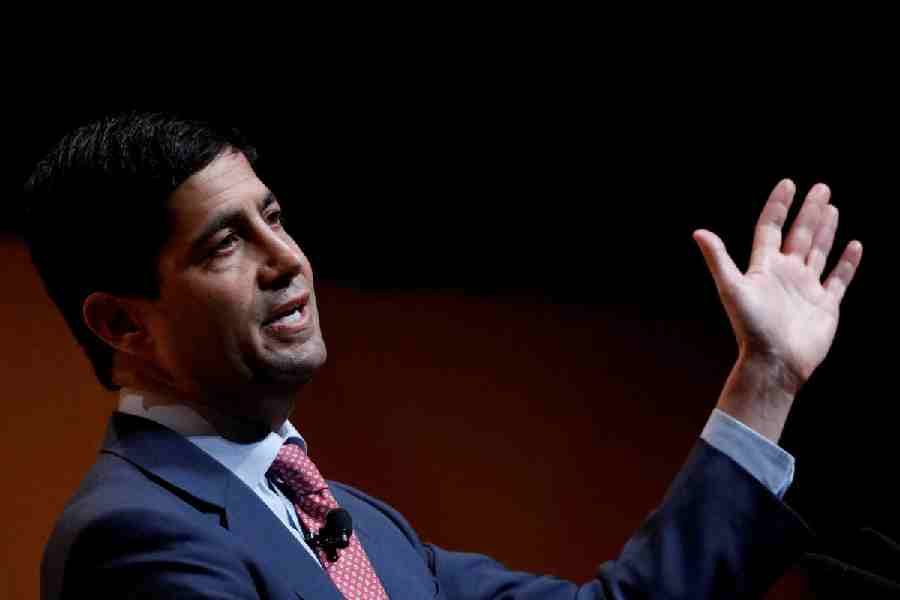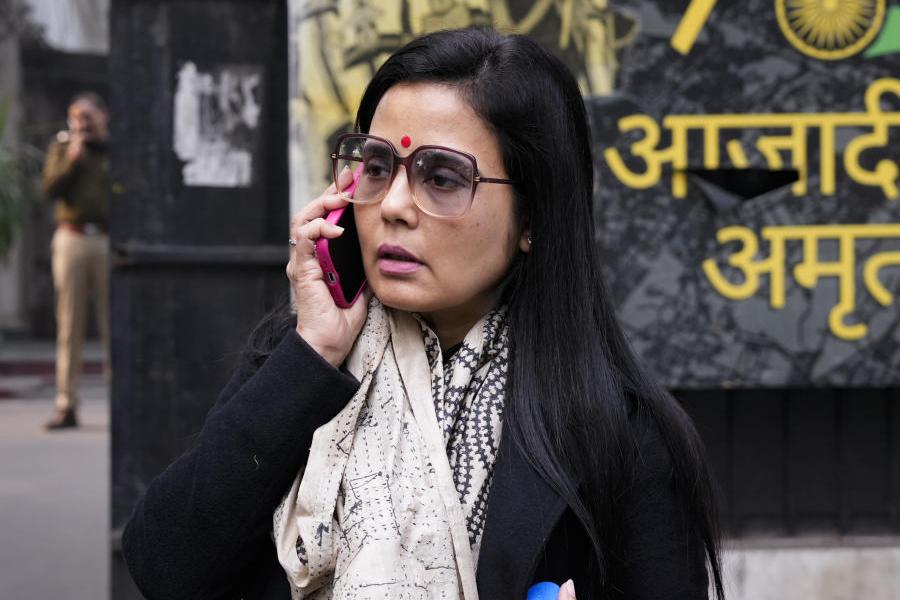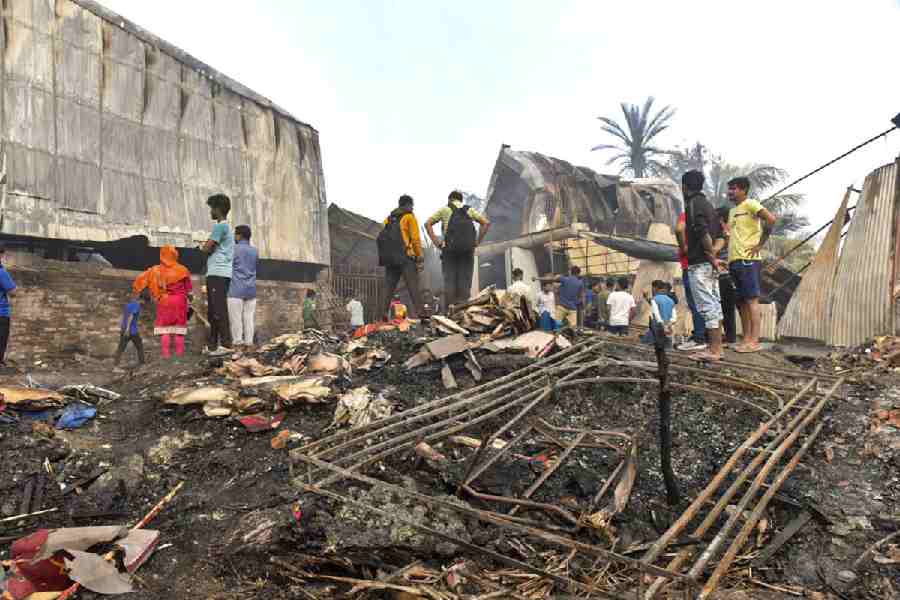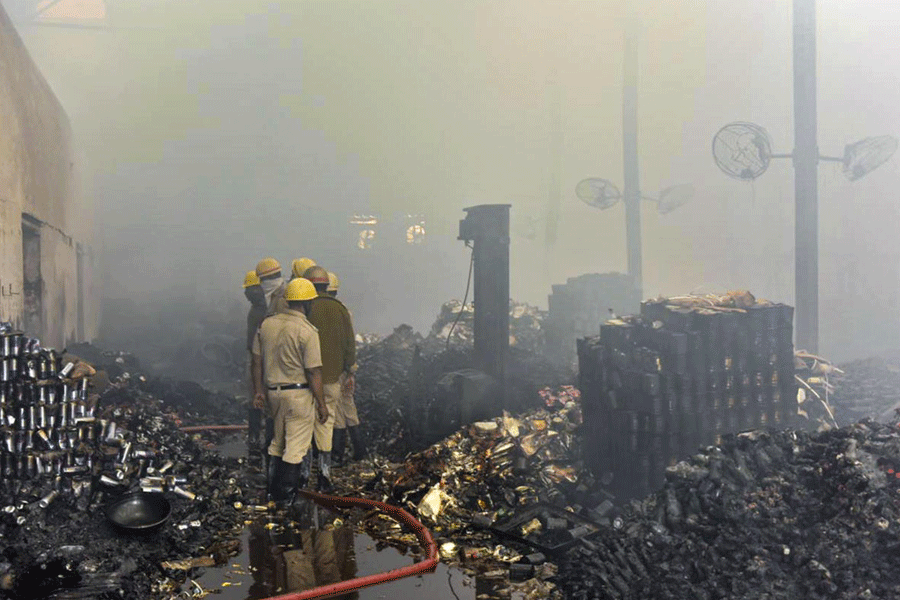
Swara Bhaskar’s last release, the heart-warming Nil Battey Sannata, was the sleeper hit of 2016. With her latest release Anaarkali of Aarah, the 28-year-old actress hopes to cement her credentials as a viable female lead. In the Avinash Das film currently playing in cinemas, Swara is a small-town singer and dancer who takes on a politician. t2 recently met the actress in her pretty home in Mumbai’s Versova to talk about the film, a character that took her out of her comfort zone, and the insider-versus-outsider debate in Bollywood.
Your character in Anaarkali of Aarah is someone who is very unapologetic about taking ownership of her body and sexuality. What is your take on her?
You don’t see a Hindi film heroine talking like Anaarkali. She is very unapologetic about being ‘characterless’. Anaarkali sings double-meaning songs and dances in front of men. She is very open about sex, her body and desires. Normally, in our films when we see a character like her, there is a backstory to justify who she is. Not here! Anaarkali starts the conversation with ‘I am characterless. This is what I do for a living. Now what?’ I thought that this was brave and refreshing.
What caught your attention when this film came your way?
It was the title of the film, ‘Anaarkali Aarahwali’. My family’s roots are in Bihar, so I knew about Aarah. The director of the film is a former journalist who had interviewed me in the past. I met him at a party and he mentioned that he had written this script. He started telling me the story and I thought he was pitching the film to me. And then he tells me that he wants to pitch the film to someone else and wants my inputs!
While I was a little ticked off, to his credit, the story was so engaging that I was hooked. So I read the first draft and we spent four hours talking about the film. I became a sounding board for him. Almost two years later, Raanjhanaa had already come out and I had finished Nil Battey Sannata, when Avinash asked me if I would act in his film. I always say that my most memorable roles or biggest hits have been those where I wasn’t the first choice.
Really?!
Ya. I got Tanu Weds Manu after a bunch of actresses rejected it. Two actresses had rejected Raanjhanaa before it came to me. Prem Ratan Dhan Payo came to me after the whole industry had refused to play Salman Khan’s sister! I keep telling the producer and director of Anaarkali of Aarah the fact that I’ve come on board after all the rejects is a very good omen for the film.
So you’ve been involved with the film from the inception...
Yes. I was very concerned about how the character shapes up. Also, with a film like this, it’s very important for the gender politics to be correct. I was very paranoid about the audience thinking why is the protagonist making such a big deal about something that small with the antagonist. When you write a film around sexual transgression of any kind, one needs to be very careful.
How aware were you of the world of orchestra singers who sing double-meaning songs?
I didn’t know anything. I am a big city girl. Even though my family has roots in Bihar, I had never been to Aarah. So, my research for this started with going there and discovering that it is a very historical city that is culturally rich. Small towns in India have so much character if you pay a little attention. I discovered Munni Orchestra Party. I met Munni and the girls and they were my main research. I made them sing, heard their stories and noted down their vocabulary.
The one thing that struck me about these women is that they think of themselves as artistes. I asked Munni to sing me one of her earlier double-meaning songs, but she insisted on singing a nirgun bhajan. Regardless of how the rest of the world sees them, they are artistes who have a repertoire. Somewhere the roots of their profession lie in folk or semi-classical arts. You’ll see this reflected in the film.

Did you manage to see them perform?
I couldn’t watch a show in Aarah but I found out about one in Kosi Kalan, beyond Mathura. I took my father to watch young girls dancing to double- meaning songs! Thankfully, my south Indian father didn’t understand the lyrics too well! In the first draft, my character was only a singer. It was in Kosi Kalan that I realised dance is integral to their performance. So I told Avinash to bring in a choreographer.
There’s that fine line between keeping the film real and making sure that it doesn’t look sleazy...
Oh ya! If the aesthetics aren’t right, a film on a subject like this can very easily look tacky. With films like this, a lot of it has to do with your intention. If you don’t want to make a sleazy film, you won’t shoot it like that. If your intention is to make a good film and to stay true to the story you want to tell, even uncomfortable scenes will not look tacky.
One of my conditions for doing the film was to work with a crew that I knew and trusted. I brought on Rupa Chaurasia, who is also from Bihar, for the costumes. We created a whole look for Anaarkali’s “performances” based on how the women I met in Aarah dressed. I took pictures and sent them to Rupa.
The non-performance clothes that she is wearing were all bought in Aarah. I told myself that Anaarkali wouldn’t spend more than, say, Rs 50 a metre for fabric, so I went and shopped accordingly in the markets of Aarah. There’s a shot of me undressing, so you can see me in underwear. I even bought that in Aarah. I asked Munni where she bought her bra and underwear from. That’s the level of detailing that has gone into this film.
I have been very attached to this character. I like characters like these because they make me get out into the world and research. It makes the sociologist in me very happy. I get to build a character on reality.
Is this a character that’s taken you out of your comfort zone?
No. Prem Ratan Dhan Payo was a character (a modern-day princess called Chandrika) that took me out of my comfort zone. I didn’t understand that scale or space at all. Therefore, I learnt a lot and had great fun on that set. In terms of honing my craft, I see it as a very important film for me.
There is so much talk now about nepotism in the industry. What is your take?
I don’t think Bollywood is nepotistic. It is feudal and it works on relationships and is star driven. So, star children get a lead in that ‘race’. That is not the same thing as nepotism. In an IAS or CAT exam, the first 10 people who get the highest marks would get through. It would be nepotism if someone’s kid got less marks and still got through.
You have to understand the industry you are working in. In India, being born in an upper caste gives you an advantage over the backward classes. You have a certain cultural capital. It’s the same thing here. Having said that, talent is recognised in today’s Bollywood. Your biggest stars — Amitabh Bachchan, Shah Rukh Khan, Deepika Padukone, Vidya Balan, Priyanka Chopra — are all outsiders. If you look at the new crop of talent there is Irrfan, Nawazuddin Siddiqui, Rajkummar Rao, Richa Chadha, me....
But it’s taken all of you a lot longer than it’s taken industry kids to establish themselves. It took over a decade for Nawaz to be ‘discovered’ by Bollywood and Irrfan almost quit acting in the early 2000s because he was so disheartened with the work coming his way...
True, but Bollywood is also classist. So, if you come from an English-speaking background you get created a certain way. But I still don’t see this industry as nepotistic. It is this industry where someone like Kangana Ranaut could succeed.
It is very well to see yourself as a trailblazer, but who were the people who cast you? There is no workplace in the world where power dynamics are not in play and Bollywood is no different. In my experience, the outsiders have been nastier than the industry kids.

